A Look Back on 2022: a year of growth and strengthened solidarity around the globe
By Jassi K. Sandhar, Global Research Fellow
As we wind down the end of another year, I am amazed at how much we have achieved within our network and the strides we have made, both as individuals and as a collective. Our global network and partners continue to accelerate their efforts to attend to the most urgent and pressing needs of their communities. We witnessed increased levels of solidarity, more calls for positive action, strengthened collaborations and shared leadership. We end this year with 150 alumni (representing 40 countries) who have graduated from our Fellows Program and are now part of our wider network.
We have compiled a month-by-month timeline of the achievements of our grassroots leaders below. Despite some challenging times, our network continue to respond with compassion, empathy, and commitment to social justice. We end the year by thanking our dedicated supporters whose commitment made many of this year’s successes possible. We look forward to your continued support for community-driven social change in 2023!
January
We commemorated the 12th anniversary of the Haiti earthquake (which had a devastating and lasting impact on the country), by sharing an update on the current situation and launching our “Global Solidarity with Haiti campaign” to support our partners Daniel Tillias and Malya Villard-Appolon, who are on the frontlines responding to those most in need.
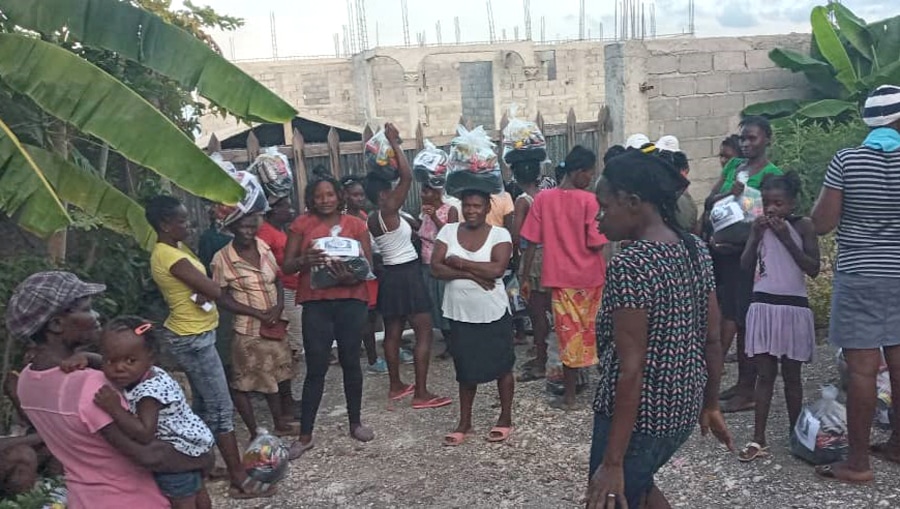
Our alumni in Liberia, Jennifer Henshaw, and her organization LEGAL which works to support the LGBT communities in the country, celebrated their 10th anniversary. Jennifer provides a reflection on their 10-year journey, including their long-standing achievements and ongoing challenges.
January was also a month of collaboration between our global partners. Our partners in the Philippines, Andy Alegre and Susana Salvador-Anayatin, joined forces to deliver urgent humanitarian relief to families following Typhoon Odette in the Philippines. Our 2021 Global Fellows Mathias Ngong Njoya (from Cameroon) and Gopal Iyer (from the UK) also collaborated to host a two-day workshop which brought together 30 youth from 15 countries in Africa and Asia. The workshop was designed to help and guide youth on professional development planning.
February
This month, our 2021 Global Fellows provided an update on their collective campaign; 24 grassroots leaders created a joint fundraising campaign to raise money to support their continued social change projects in their countries. Collectively they raised $12,000. John Kamma, 2021 Global Fellow from Liberia, used those funds to initiate a community clean-up day in Glass Factory community (which is an overpopulated but underserved community).
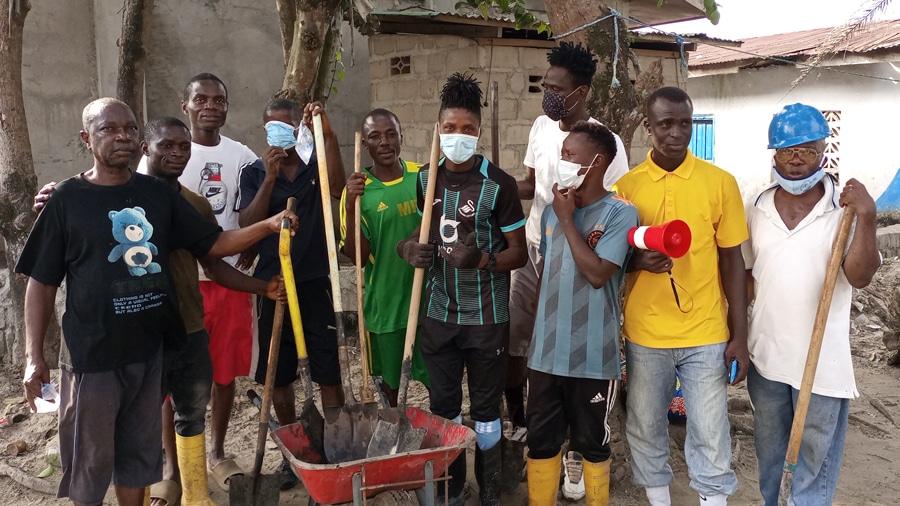
This month, the Chicago Peace Fellows Mutual Aid Collaborative also held a press conference on the anniversary of the assassination of Malcolm X to amplify the themes of their open letter, A Pathway to Anti-Racist Philanthropy.
2021 Global Fellow from The Philippines, Andy Alegre, commemorated International Day of Prayer and Awareness Against Human Trafficking by organizing an online prayer session together with churches and various organizations using a special vigil of prayer specific to this event. This month, Chicago Peace Fellow Jamila Trimuel’s organization also hosted their annual LOV Day, a day dedicated to “show love to our Black girls!”.
March
We welcomed our 2022 Chicago Peace Fellows! 14 grassroots leaders representing 14 different communities across Chicago joined the Fellows program to learn, share, and collaborate together as a Community of Practice.
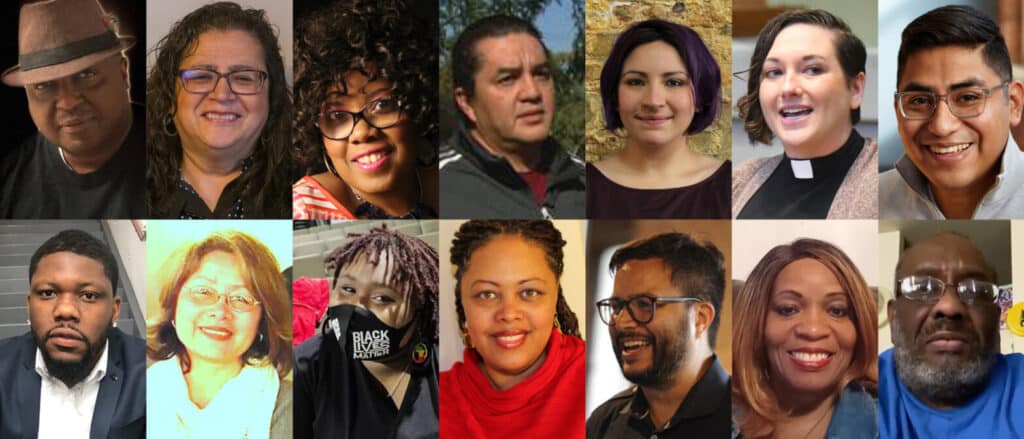
Our 2021 graduates of the Chicago Peace Fellows Program also organized and enjoyed a retreat, to collaboratively focus on rest, restoration and reflection in beautiful surroundings and to strengthen the bonds between them.
We also saw collaborations between DePaul University (Chicago) and Global Fellow Berry Behr (South Africa) which helped document oral history testimonies to capture the interfaith efforts from leaders on the front lines of ending apartheid.
April
Goldin Global Fellow Munyaradzi Dzimunwe from Zimbabwe partnered with She Trades to provide training for women entrepreneurs in the country to help them sell their products on international markets.
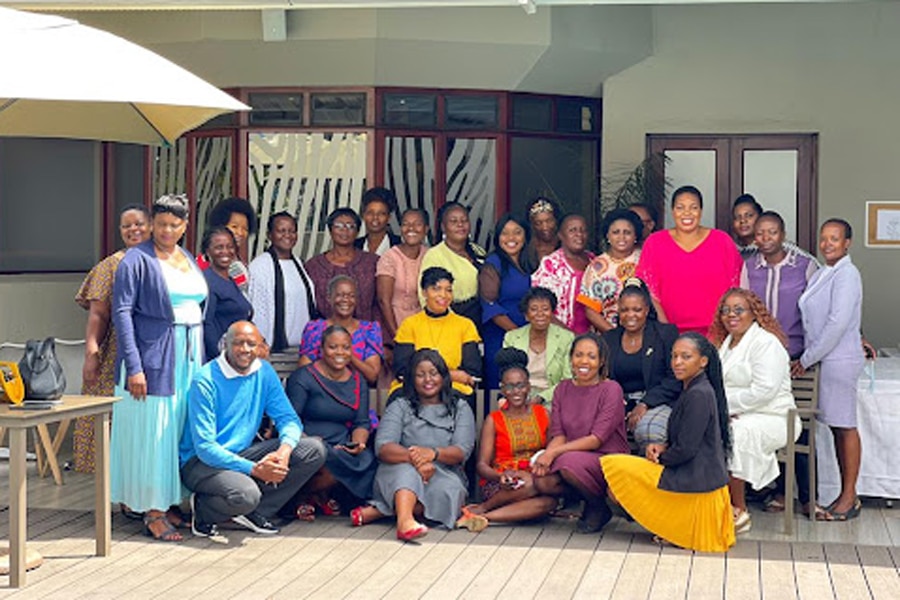
Goldin Global Fellow Nicholas Songora Odoll also provided an update on the critical work of the Manyatta Youth Entertainment (MAYE) in the coastal counties of Kenya to promote social accountability, civic education, and social justice using creative arts. Chicago Peace Fellow, Annette Kelly, also helped host a series of workshops on Violence Prevention in Chicago through her work with the Chicagoland Vaccine Partnership (CVP) in the communities hardest hit by COVID and violence.
The 2022 Chicago Peace Fellows also met for the first time to begin their Fellows Program; the launch brought together a powerful community of activists, artists, social workers, and community leaders representing 14 community areas on the South and West sides of Chicago.
May
Chicago Peace Fellows provided 300 Mother's Day bouquets to mothers who have lost their children to violence in Chicago, bringing comfort to families impacted by gun violence and raising support for peace building projects in Chicago to prevent these tragedies in the future.
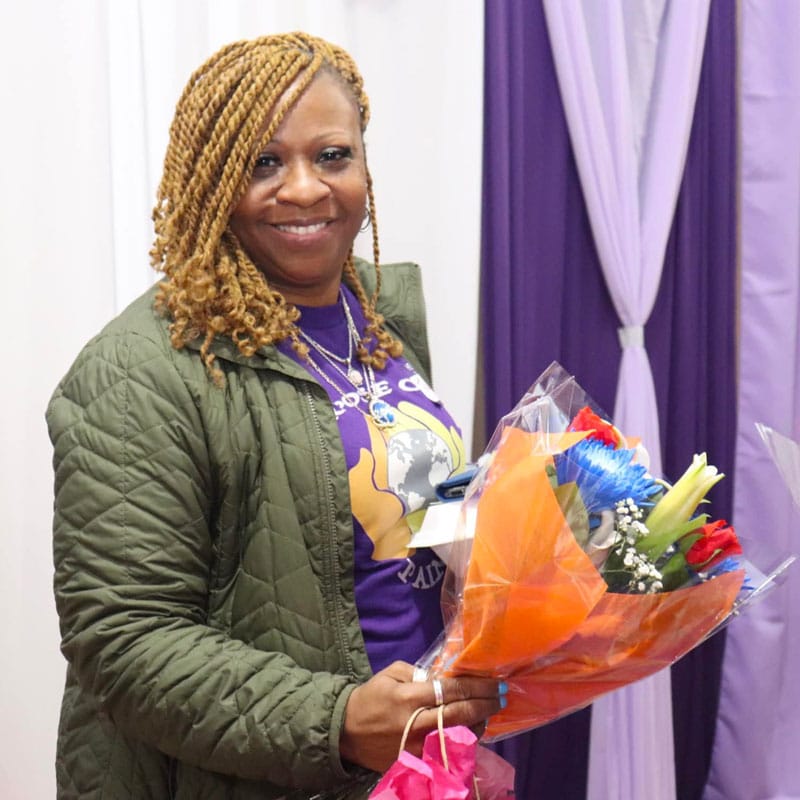
2018 Goldin Global Fellow Cynthia Luvlee shares an inspiring update from Shyne San Diego, sharing the principles that powered the exponential growth of the Shyne Survivor Business Network™ which recently enrolled its 50th survivor entrepreneur!
We also received an update from Global Fellow from Liberia, John Kamma, who worked in collaboration with Catalyst 2030 and his team to mobilize his community to improve health and sanitation and hosted a conversation on narrowing the "justice gap" in the Glass Factory neighborhood.
Mahdar Tahir, Goldin Global Fellow from Malaysia and founder of the Crescent Collective, shared his insights as a panellist for a discussion on religious freedom for which he spoke about the role of religious leaders in building social harmony.
June
In June we welcomed 14 grassroots leaders from around the world onto our 2022 Global Fellows Program! This is the third cohort embarking on the four-month program, where Fellows worked and learnt together as a Community of Practice.

The Chicago Peace Fellows Mutual Aid Collaborative held the Second Annual Concert for Peace at the Hatchery on June 4th, celebrating the artistic accomplishments of their communities and a shared commitment to improving their neighborhoods. The Mutual Aid Collaborative also worked to address an increased demand for blood from Black and Brown donors through holding the #OurBloodMatters blood drive as part of the ongoing project called The Safety Net.
Chicago Peace Fellows hosted a conversation at the Firehouse Community Arts Center on June 3 2022 to discuss community safety and crime data with the University of Chicago Crime Lab as part of the Mutual Aid Collaborative’s Civic Leaders series. This month, Chicago Peace Fellow Pilar Audain also partnered with theater company Collaboration to design and host Moonset Sunrise, a theatrical experience rooted in healing, self-care and collective growth through song, storytelling, dance and ritual.
To solidify and spread the benefits of the peace agreement in the Southern Philippines, Global Fellow Lo Ivan promotes the need to lean into the indigenous culture of volunteerism, known locally as "bayanihan", as a peace multiplier that shapes the Bangsamoro youth as proactive agents of peace, development, and social transformation.
July
In July we launched our first ever Global Fellows Program in Spanish! We welcomed 17 grassroots leaders and activists onto the program, who undertook the curriculum and engaged in the journey together in Spanish. These Fellows live and work in Argentina, Bolivia, Chile, Colombia, Haiti, Mexico, Spain, the United States and Venezuela.
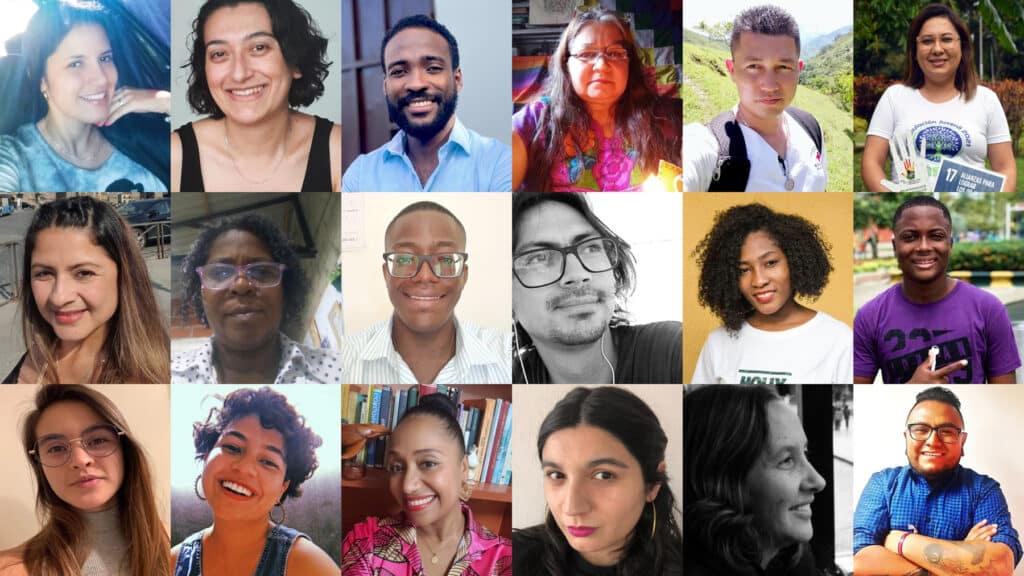
Chicago Peace Fellows Mutual Aid Collaborative hosted a Civic Partner Series conversation with University of Chicago Medicine Violence Recovery Team to learn about a unique public health model of violence interruption. And Global Fellow from Detroit, David Metler, provides insights into Swingset Activism and the idea of social justice education inspired by childhood. He proposes that we have much to learn from children who can help us integrate our activism into our lives and embrace the elements of playfulness, joyfulness, loving-kindness, presence, creativity, and our capacity to re-imagine what is possible.
August
The Chicago Peace Fellows Mutual Aid Collaborative this month carried out two activities. They launched the Safety + Cycling Team to tackle violence which occurs during road and traffic accidents, by providing bike helmets and safety tips at community events.
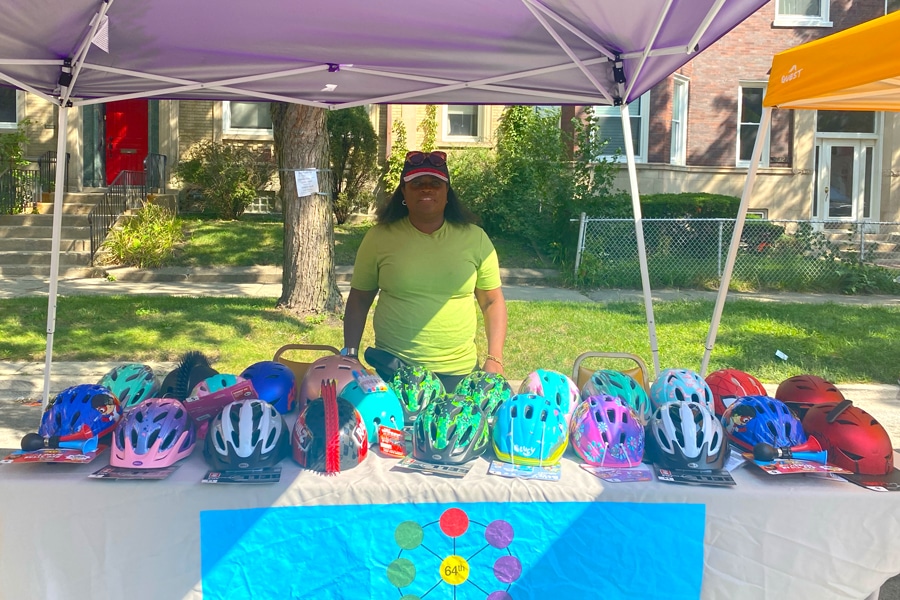
The Mutual Aid Collaborative also hosted a conversation with Dr. Andrew Papachristos to build connections and learn how the science of social networks can be used to understand and target support to people at the highest risk of becoming a victim of gun violence.
2019 Chicago Peace Fellow, Pastor Robert Biekman, piloted a Community of Practice utilizing the GATHER Platform to foster peer-to-peer learning amongst newly ordained pastors with the Evangelical Lutheran Church of America (ELCA). And Global Fellow from Argentina Diana Rocio Gomez Torres, explored the emergence of social movements across South America and bring visibility to the history and memory of these strategies of practical and symbolic resistance.
September
In September, our Fellows around the world embarked on several peacebuilding projects in honor of International Day of Peace 2022. These activities included: The launch of an apprenticeship program for Children Born of War in Uganda, using soccer to promote peace and reconciliation in Colombia, creating a new generation of youth leaders working on peacebuilding in Israel, Freestyling for social change in Colombia, and Peace Day activities from three Global Fellows in South America.
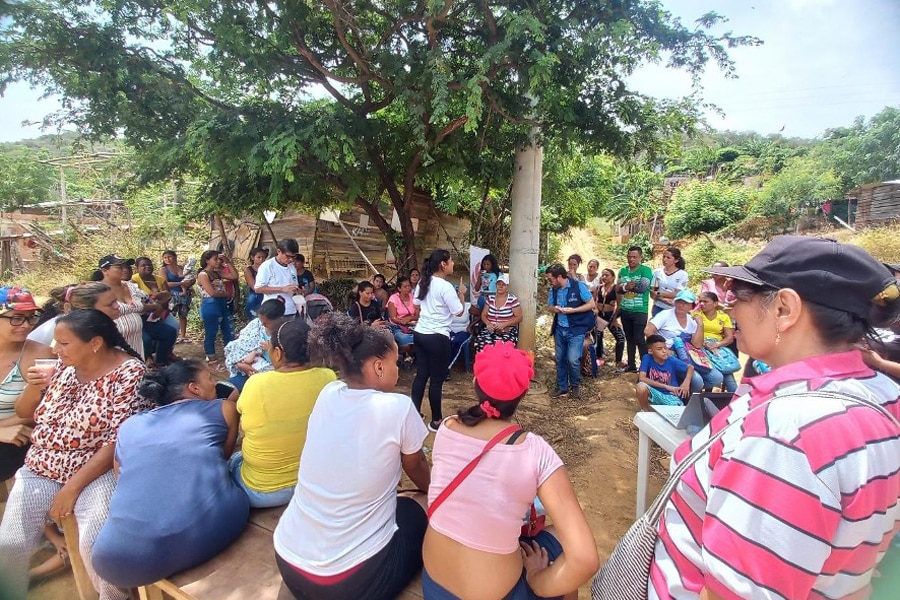
This month we also saw the graduation of the 2022 Chicago Peace Fellows! After embarking on a five-month learning and sharing journey together, their achievements were celebrated at the Chicago History Museum.
October
This month the Goldin Institute turned 20! For the past two decades the Goldin Institute has adopted an approach which is grassroots-led and embedded in kindness, compassion and learning, from everyone but most especially those closest to the issues. We promote the voices of those excluded voices who often have the most at stake in making progress and ensure that they have leadership roles in every social change movement. Which is why it is extremely exciting to celebrate 20 years of the Goldin Institute.
The Chicago Peace Fellows Mutual Aid Collaborative also launched Generation NOW, an idea conceived by Messiah Equiano, a 2021 Chicago Peace Fellow, which will provide opportunities for young people to write and produce a teen talk show addressing everyday issues that teenagers face. We also celebrated the Chicago Day of the Girl with Chicago Peace Fellow La’Keisha Gray-Sewell’s organization (Girls Like Me, Inc) hosting an event to both celebrate Black girls in the city and ensure their sense of belonging.
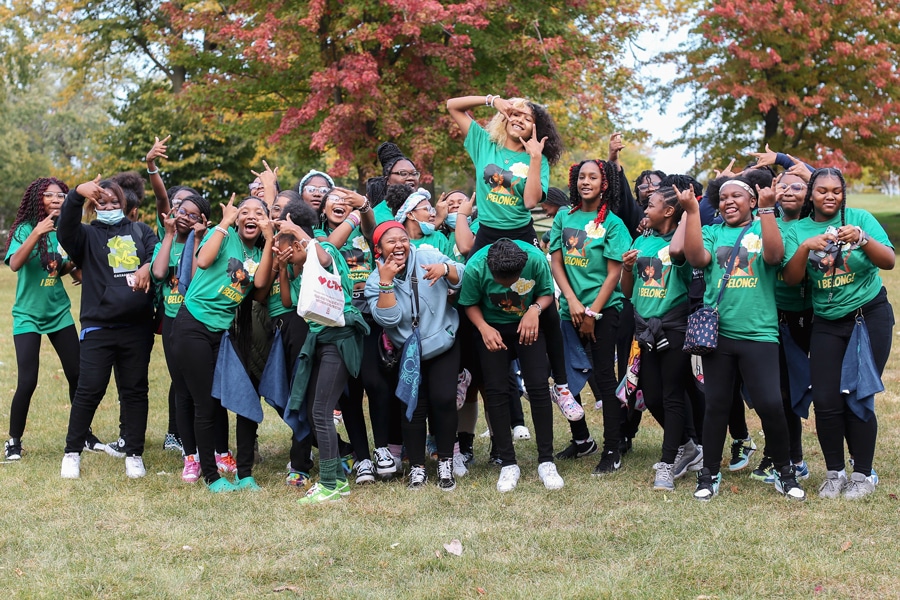
The first annual Sukkah Design Festival was also held this month, on October 9-16, showcasing North Lawndale’s Jewish history and providing social services to the community. Reshorna Fitzpatrick, 2019 Chicago Peace Fellow and Executive Pastor of the Stone Temple Baptist Church, was a member of the organizing committee, which included both community-based organizations and design firms.
November
Our 2022 Global Fellows (English-language cohort) graduated from the Gather program! At the graduation ceremony on 4th November, the 2022 Fellows demonstrated their achievements and shared their aspirations, recognizing how much stronger they now are together.
Global Fellow Oluchi Uzodimma from Nigeria also provided an update on the devastating impact of the recent flooding in Nigeria which has displaced more than 2 million people and damaged over 200,000 homes.
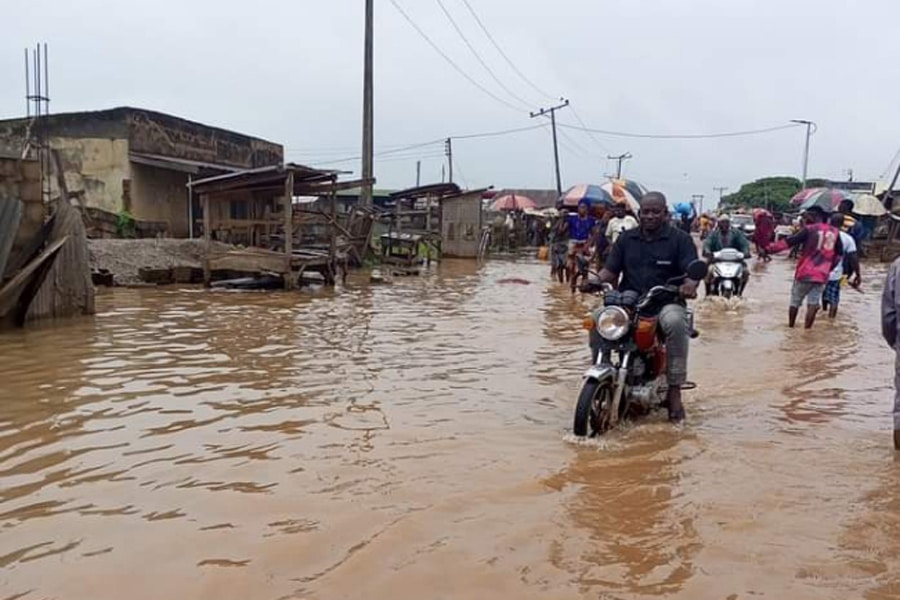
December
As we wind down to conclude the year, we were honoured to celebrate the achievements of the first Spanish-speaking cohort at their graduation ceremony on December 10th. The ceremony included performances in the form of song, freestyling, music, and poetry and reflected on what the Fellows had achieved, individually and collectively.
We remain humbled and honoured by the achievements of our global network of Fellows and we have much to be thankful for, especially the support of our global network of friends and colleagues. We would like to give a special thanks to all our sponsors and supporters for ensuring our leaders were able to continue their much-needed activities throughout the year.
Celebrating the Graduation of the 2022 Goldin Global Fellows Spanish Cohort
Creating an accessible leadership program for Spanish-speaking grassroots leaders
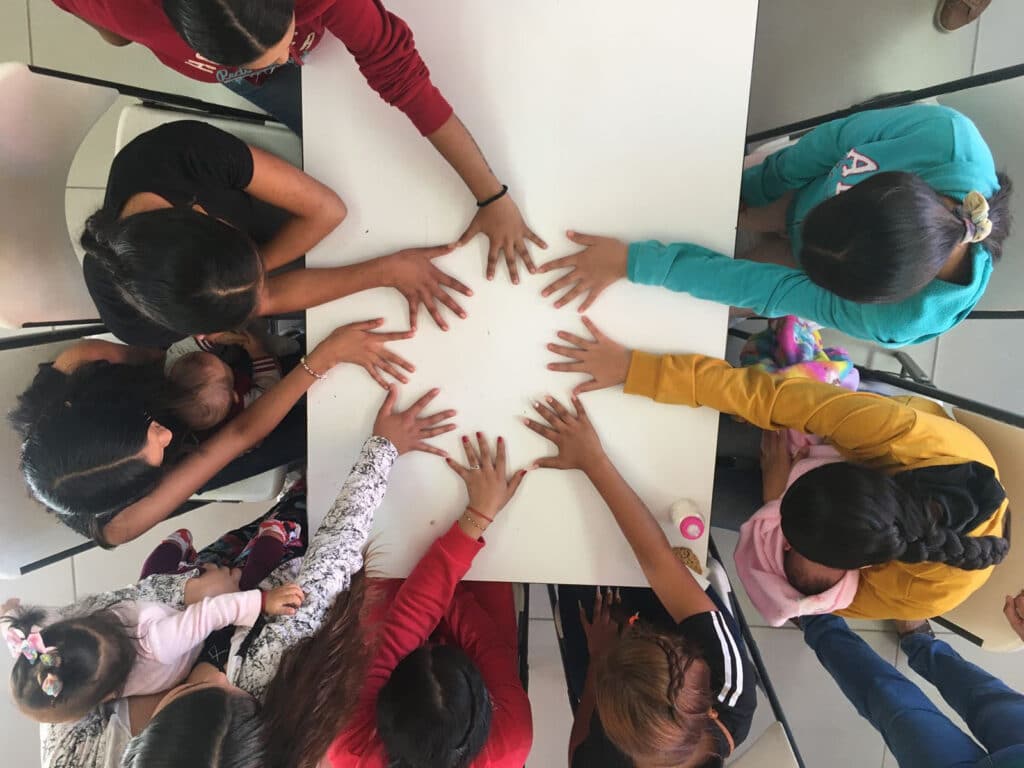
On December 10th we celebrated the graduation of the first Goldin Global Fellows program in Spanish language, where 17 Spanish-speaking grassroots leaders from eight countries in Latin America and Europe came together to create a new community of practice.
Since 2018, we've held onto the dream of offering the Fellows program in Spanish. True to Goldin Institute’s principles of ensuring that resources and connections are accessible to as many grassroots communities around the world as possible, offering the program in Spanish has long a priority for our whole team. Removing language barriers -- which included translating the curriculum, readings and videos in the GATHER Platform from English to Spanish -- was not an easy process. But I can say the effort to offer this course in Spanish has been worthwhile, especially for me as a Spanish-speaking activist who has been able to find a community who speaks in my native tongue and who are also working on both similar and different issues.
“Gather is knowledge and collective construction.” -- Luis Alomia, Colombia
During the recruitment process we counted on our Alumni, friends and colleagues from Colombia and Latin American countries to help us share the news of the application and spread the word. We were delighted to receive applications from a diverse group of grassroots leaders from over 10 countries that crossed many divides in our society, bring together youth and elders, leaders from rural places and main cities, victims of violence and former combatants. Together, these individuals represented a wide range of sectors, including environment, law, education, technology, peace and reconciliation, arts, memory, sports, theater, and more.
“Gather is a before and after of my leadership. I am happy since they contributed to broaden my vision and knowledge that will help me to build solutions that can be lasting over time and see communities as a treasure of active resources and that will be an example of good practices for other communities that want to join the transformation”. -- Natasha Duque Torres, Venezuela
It was truly a very diverse group, each doing beautiful work individually, but tied together by the common bond of being leaders on the front lines where life revolves around changing their communities and finding solutions every day. From these applicants, we selected 17 individuals who became the first Spanish-speaking cohort.
As a facilitator I was impressed when talking with our Fellows about the learnings and concepts delivered in the program, and realized how their perspectives and ideas about their community and social-change work had begun to develop and adapt. Indeed, they became more aware that new solutions had to be based on all the assets they always had but may not have seen in their communities. It was also moving to see how they started imaging a new understanding of leadership which counts on the whole community, giving opportunities to those often left behind. I was further impressed at how sensitive they became; in our conversations we sometimes cried noticing the changes they were going through and how new concepts gave them a vision of collectiveness.
"Gather has allowed me to broaden my horizons as a social leader by identifying and valuing resources and assets that we have as a community, as well as empowering the leadership of my colleagues based on the recognition of their individual strengths and interests in community work." -- Diana Rocio Gomez Torres, Argentina
Fellows felt that the course on the GATHER Platform was different from other courses because they had a strong sense of support from the Goldin Institute team and meaningful relationships with their peers.
It’s like a family that we can always count on, no matter what.
In our roundtable “Reflections and Critical Moments” one of the most broadly shared reflection was that the Fellows felt like they were not alone in this program, knowing there were other leaders around the world doing the same and learning alongside them. For example, Ernst from Haiti would tell us about the challenging times facing the Haitian population due to the political situation in his country, or Eva in Argentina would share that she faced many struggles for raising her voice against state violence. We also exchanged positive and happy stories too, for example Manuella shared about her journey from Quibdo (Colombia) to Spain to talk about how successful her project about football was there, or Nuria from México who got to be involved in a project to protect underage pregnant girls. We also had Martha from Guapi (Colombia) who graduated from her specialization during the Fellows program and Arturo from Bogota (Colombia) and his “Picaditos” Football matches with youth when they launched their book “La Prisión que Jamás me Contuvo” written by a former combatant. All of us looked forward to meeting each Saturday where we shared beautiful moments with each other during our weekly GATHER Roundtables.
“Gather is a seedbed in which the strengths, abilities and natural gifts of leaderships are brought out.” -- Geiner Arrieta, Colombia
So when the Program came to an end, Fellows wanted their graduation to be like a party; a celebration of life, cultures, learnings, our individuality and how this makes sense in community. Fellows celebrated with drinks from their territories, showing off their typical customs or any other item that represented them. We also had a freestyle performance by Johnathan, and a video of some musicians and dancers from the region where one of our youngest fellows, Luis Alomia, is from.
“My Gather experience has helped me to see that the actor of change that I want to be requires the participation of everyone in my community. Having grown up in a society where exclusion is the norm, Goldin has given me the necessary tools to be a true agent of change by collaborating with others and identifying our resources to be able to dream big together”. -- Ernst Djeride, Haiti
I have to say the best part of the celebration was the desire of Fellows to talk about the future and their optimism for new collective projects. They want to move forward, grow, and build together. Fellows Manuela and Arturo proposed four lines of work for Fellows in 2023:
-
- Creating a shared asset map with the purpose to realize a meeting of sharing vision. To have it real, we need a plan to know what we have, what can we do to meet us face to face together and develop our community visioning summit.
- Monthly meetings where each person of this cohort can lead one of the meetings.
- A directory of all the members of the Alumni network with their strengths and special topics and projects where they work.
- Participate in all the workshops set up by the Goldin Institute so we can learn, meeting new people and collaborate in new projects.
- We can share our networks, follow each other, and get to know what each one is doing, as well as and distribute what others are doing, including Goldin Institute’s social networks.
- We need help from the Goldin Institute to present our projects in case we need representation.
"Gather has given me the chance to meet my community again, open up to new listening, in order to collaborate on the paths we are charting together”. -- Nora Gabriela Fuentealba Rivas, Chile
And now, Fellows faithful to the principles they learned during the Goldin Global Fellows program wanted to remove barriers of distance so some of them made the efforts to meet with each other in person!
“As you may know this is the 20th birthday of Goldin Institute and I can’t think of a better way to celebrate our 20th anniversary than by welcoming you into our Global Family, congratulations to all of our new graduates on behalf of the Goldin Institute, and especially, on behalf of Diane Goldin, the Founder and Board chair of the organization.” - Travis Rejman, Executive Director of the Goldin Institute
Celebrating 20 years of grassroots leadership and social change
By Jassi K. Sandhar, Global Research Fellow
It is very rare to find organizations like the Goldin Institute. As an employee of the Institute, I promise this is not a biased opinion. Having worked in the non-profit sector for 12 years, being involved in various social justice and human rights projects, the Goldin Institute has stood out as an organization which embodies principles of justice, fairness, equity, and kindness both within the Institute itself and in the work we do.
The importance of adopting grassroots approaches in social justice work is becoming increasingly recognized, but the approach taken by the Goldin Institute over the past two decades goes beyond that. It is grassroots-led and embedded in compassion, kindness and learning, from everyone but most especially those closest to the issues. We promote the voices of those often excluded who have the most at stake in making progress and ensure that they have leadership roles in every social change movement. Which is why it is extremely exciting to celebrate 20 years of the Goldin Institute.
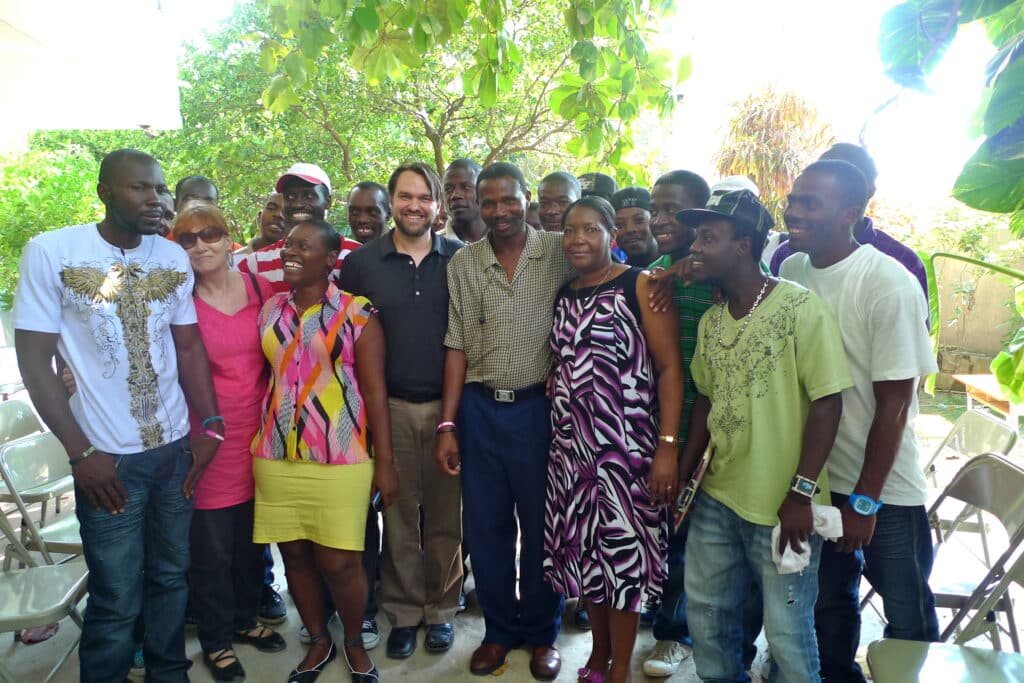
Our commitment to community-driven social change was foundational from our very inception. In October 2002, grassroots leaders from over 25 cities around the world convened in Chicago to learn from each other to collaboratively determine the mission, values and strategy of what became the Goldin Institute. The Goldin Institute was born through this conversation as an enduring platform to provide grassroots community organizers with tools and support they need to build meaningful partnerships within and between their cities. Fast forward to today, the Institute has expanded its reach to 150 Alumni leading change in 40 countries (and growing)!
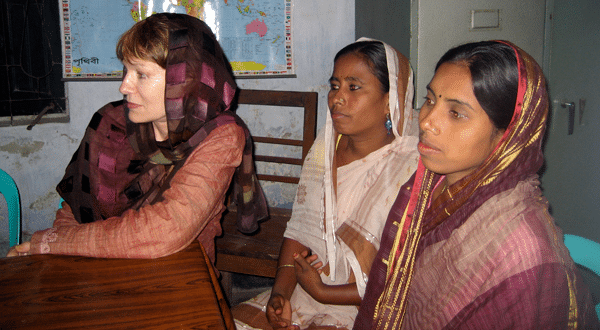
The last 20 years have taken us on an inspiring and incredible journey. We have worked with grassroots leaders in over 50 countries on issues such as:
- Child Soldier Reintegration in Uganda: In the discussions about disarmament, demobilization and reintegration of children used as soldiers in the conflict in Northern Uganda, the voices and perspectives of former child soldiers have too long been ignored. Former child soldiers themselves led a ground-breaking oral testimony process by interviewing over 150 of their peers and together reflecting on common concerns and shared aspirations that led to the creation of YOLRED, the first reintegration and support organization designed and run by former child soldiers.
- Addressing the Water Crisis in the Philippines: In war-torn Mindanao, over 70% of the population lacks reliable access to safe drinking water. Through the leadership of Global Associate Susana Anayatin and her team, over 40,000 people now have access to safe water in the region through the installation of water wells at over 140 local schools. In addition to providing a critical resource, this project brings together all sides of the conflict who are working together to “win the peace”.
- Tackling Gender-Based Violence in Haiti: Since the January 2010 earthquake in Haiti, women and girls living in the internally displaced persons camps face alarming rates of rape and other forms of gender-based violence. Through the leadership of Global Associate Malya Villard’s and KOFAVIV, men have joined the movement to provide security and advocacy to end all forms of gender-based violence in Haiti.
- Improving Microcredit in Bangladesh: The current global debate about the efficacy of microfinance is marked by the absence of those who have most at stake in the controversy: loan recipients. The Goldin Institute worked with partner organization Nijera Kori to lift up these voices, most often marginalized women, and restore their perspectives, insights and aspirations to the discussion, leading to the return of indigenous community support systems and greater regulation of the microfinance industry in Bangladesh.
- Mutual Aid Collaborative in Chicago, USA: Today, Chicago is stained by an enduring legacy of racial injustice that is laid bare by the disproportionate impact of the twin pandemics of violence and COVID-19 on our communities on the South and West sides of Chicago. In response, the Chicago Peace Fellows launched the Mutual Aid Collaborative as a model of the structural changes they seek, practicing a model of shared leadership, collaborative decision-making and collective action.
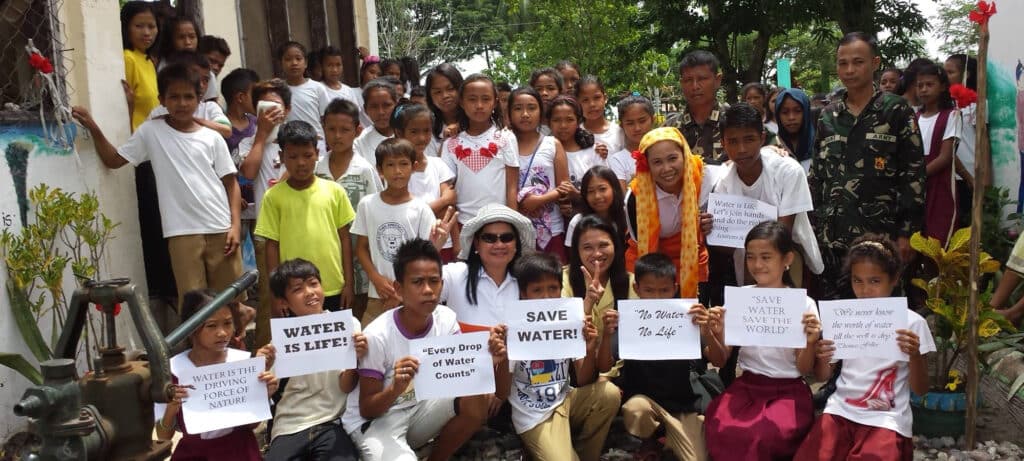
In 2018 we made significant strides in facilitating a global network of community leaders through launching GATHER, a tablet-based mobile learning tool to empower communities of practice. GATHER allows peers to learn, work and reflect together using practical tools. That same year, the Institute launched the Global Fellows program, an international cohort of 20 Fellows who collaborated with one another through a progression of learning about new theories of community engagement, practicing these ideas in their own areas, and reflecting together as a global community of practice.
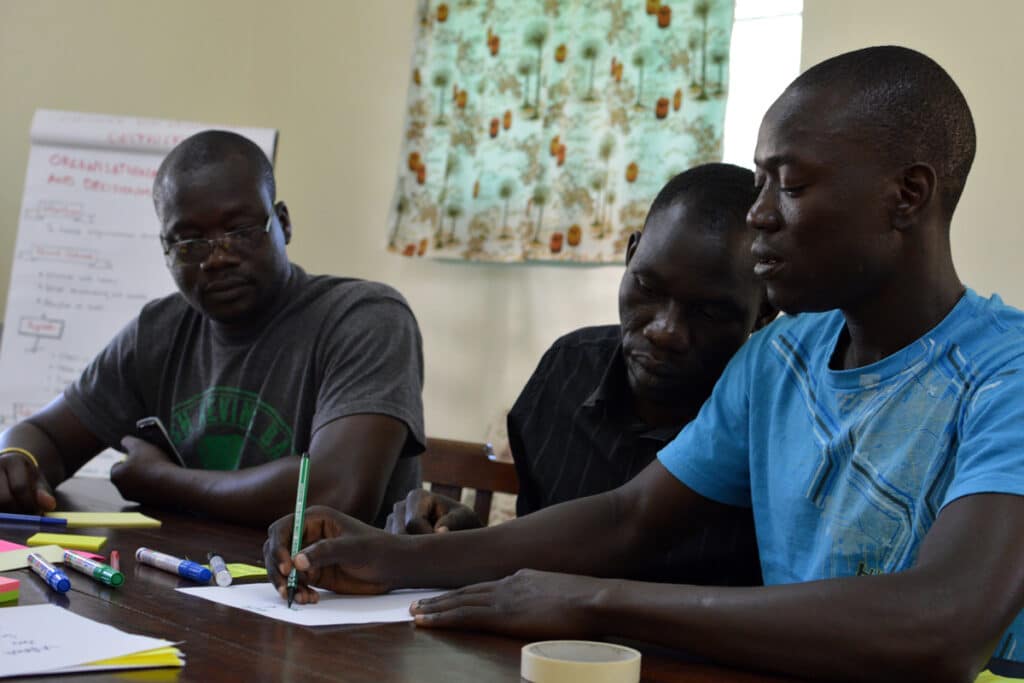
The success of the 2018 pilot has seen the GATHER course run annually with the Chicago Peace Fellows program and the Global Fellows program and, to date, we have trained 150 grassroots leaders in 40 countries in the GATHER curriculum. These grassroots leaders are local community or civil society leaders and practitioners, and represent a diverse group of backgrounds, ages, genders, and locations, and work on a range of pressing and urgent social justice issues. We are excited to continue this international Fellows program and excited to see what we can achieve together in the next 20 years.
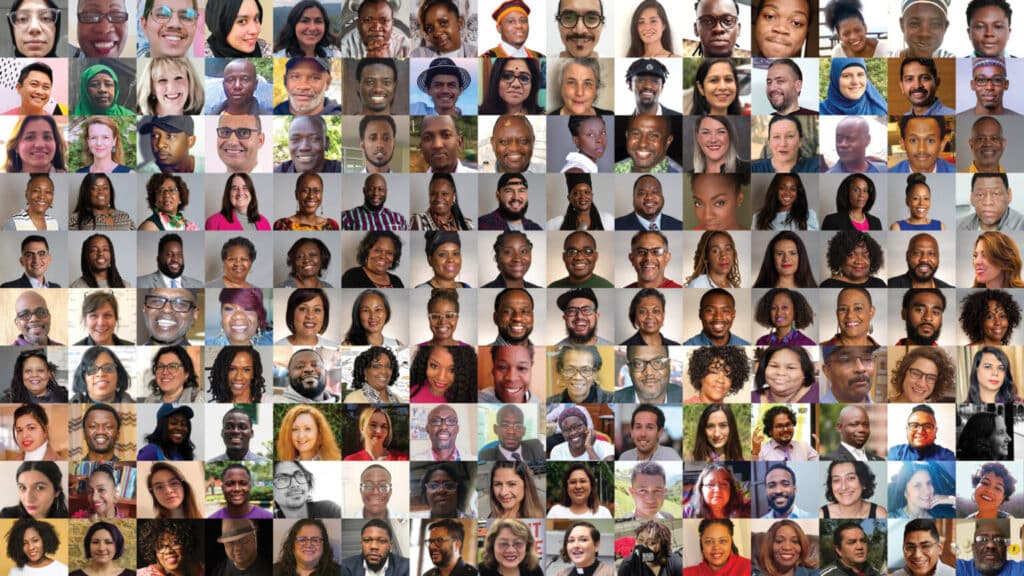
We thank you for sharing the last 20 years with us; we are particularly thankful for the continued commitment of our supporters who have stood beside us and ensured the vital work of our global network continues.
“Malya Villard Appolon, the founder of KOFAVIV (women's commission of victims for victims in Haiti), wishes the Goldin Institute a happy 20th anniversary for the good work it is doing around the world. It is because of the Goldin institute that KOFAVIV still exists today. It is still helping women who are suffering from tragic violence under armed gangs who are doing violence in all forms especially sexual violence that does not give chance to neither women nor girls. I will never regret that day Goldin Institute came our way. I am very proud of the Goldin Institute. I urge all organizations in the world to support Goldin to continue to bring change to the most vulnerable people within the Haitian society and other global communities. Thank you.” - (Malya Villard Appolon, Global Associate from Haiti).
Rebuilding in Haiti: Reflections on the 12th Anniversary of the Earthquake
Today marks the 12th anniversary of the 2010 earthquake in Haiti, which caused large-scale destruction to the country’s capital, Port Au Prince. It is a date Haitians will never forget; the day they experienced one of the worst natural disasters in the nation’s history, an earthquake registering 7.0 on the Richter scale. As the country continued to mourn the legacy of this disaster, in August of last year it was once again hit by another Earthquake, this time impacting the southwestern part of the island. The Earthquake was followed by Tropical Storm Grace two days later which swept across the country, causing further damage and suffering for the victims of the earthquake.
In response, the Goldin Institute launched a crowdfunding campaign to support our grassroots partners in Haiti, Daniel Tillias and Malya Villard-Appolon, who are on the frontlines responding to the needs of those most affected by the earthquake.
Will you join us in stepping up to support grassroots leaders in Haiti rebuild their lives?
The international response to the 2010 earthquake highlighted, starkly, disaster capitalism. Of the billions of dollars raised to help rebuild the country the majority was spent on foreign intervention and personnel, including international NGOs, UN agencies, and the US military. Very little of this money ever reached local communities, local businesses, or local civil society organisations.
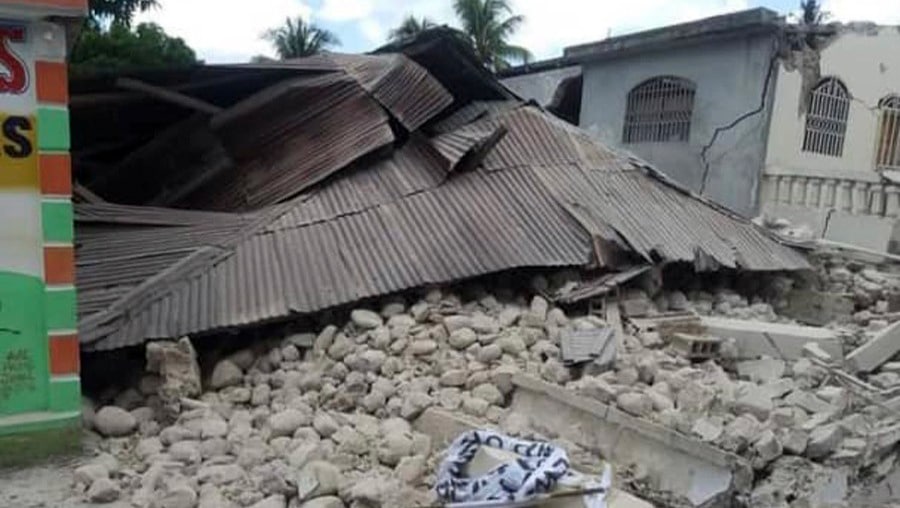
Not only did the people of Haiti have to deal with rebuilding their lives following the disaster, they also became aware of how their suffering was being used to profit international institutions and consultants. $6.4 billion which they never saw.
"We must learn from the mistakes from the response to the 2010 earthquake. We need to sustain local businesses. We must invest in Haitian communities and businesses and use their services in this disaster relief as much as possible.” – Daniel Tillias
Recognizing the impact of these past failures, many local activists and leaders are resisting this model of foreign intervention and reliance on hand-outs (or on the hope that they might materialize), and calling on international donors and funders to channel their support to grassroots actors who have the knowledge and networks to ensure funds are directed and used adequately.
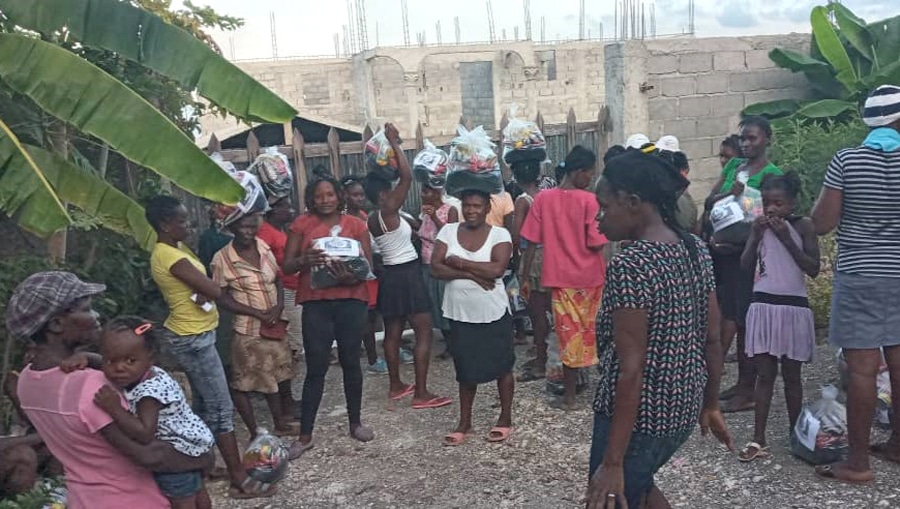
It has been five months since the 2021 earthquake hit Haiti. More than 2,200 people have died, 12,200 injured, and hundreds remain missing. More than 50,000 homes were destroyed and another 77,000 damaged. When reporting on disaster situations, death tolls often become shadowy figures and it becomes difficult to know what we can do to help; one of the most significant ways we can support is by trusting those local leaders who are on the frontlines of disaster response.
Daniel from Port au Prince, Haiti, works to improve the welfare of children and youth. In 2002 he co-founded a grass-root organization called SAKALA to promote peace and reconciliation in Haiti. With the computer Learning Center , Community Garden and sports activities, SAKALA has managed to provide a safe space in the heart of Cité Soleil (Haiti's largest underdeveloped area) where youth come together to grow, learn, and play.
Malya is a recipient of the CNN Hero Award due to her efforts against gender based violence in the displaced persons camps after the 2010 Earthquake in Haiti. She is also a co-founder of the Commission of Women Victims for Victims (KOFAVIV) working to support at risk women and girls.
As we reflect on this 12th anniversary of the great earthquake, we remain in mourning for Haitian families who lost so much, especially the women and children who were raped and abused as they were displaced to Petionville Square and other places across the country. We cannot forget. We need your support, especially for vulnerable women and girls who are still being victimized. -- Malya Villard Appolon
Together Daniel and Malya have been coordinating disaster response efforts on the ground to support children and women whose homes, businesses and families have been affected by the Earthquake and Tropical Storm Grace. They need urgent emergency relief to help women rebuild their small businesses to earn family income, to help them rebuild their homes and provide meals and school materials for their children. KOFAVIV supports 150 women survivors in Grand-Anse (Jeremie), Les Cayes, Barradères, and Port-Au Prince, who are currently under extreme conditions as their income generating activities have been ruined. Most of them are yet to recover from the previous Earthquake in 2010.
Please donate today to show your solidarity with Daniel, Malya and the people of Haiti.
Stand With Us In Haiti
By Malya Villard Appolon, Goldin Global Associate, Haiti
We are raising our voices on the 10th anniversary of a date Haitians will never forget – January 12, 2010 - when Haiti experienced one of the worst natural disasters in our nation’s history, an earthquake registering 7.0 on the Richter scale. In 7 seconds, thousands of lives were lost, and the survivors were left screaming in confusion and wondering at the fate of loved ones. Women were left without husbands, children without fathers or mothers.

In the days afterward, the toll rose to over 100,000 dead, countless wounded, and 1.5 million more displaced from their homes and communities. For women and girls in particular, the physical and emotional devastation never ended.
Hundreds of thousands of Haitian citizens were suddenly pushed into displacement camps with scant governmental or international aid, so that chaos and systemic violence against women resulted. We still live in daily fear of assault on our lives and well-being.
After the earthquake, I saw and experienced the violence against women lost our own homes and lived in informal tent cities that sprung up in its wake. My own house collapsed, and I personally lived in a makeshift tent in the Champ-de-Mars park, witnessing everything that happened. Before the earthquake, Champ de Mars was the largest public park in the Haitian capital, Port au Prince, and it became a tent city for the displaced.
THE COMMISSION OF WOMEN VICTIMS FOR VICTIMS (KOFAVIV) was founded before the earthquake, in 2004, with 5 women including Marie Eramithe Delva, Joseph Solange, Ruth Jean Pierre Elena Fevry, and me. We were all victims of sexual violence and massacres who decided to join forces to fight to get justice for other women as well as for their children. Because the families of the victims have never been able to get justice, we decided to fight for other women to get justice one day.
As we were experiencing all sorts of violence after the quake, we had to put in place strategies that involved men in patrolling the camps to stop the violence, developing whistleblowing methods, and establishing male-to-male accountability for prevention. We also were involved in a lot of domestic and international advocacy.
Even today, there are still people scraping by in encampments with names such as Villam Beta and Camp Tokyo. Displaced women and girls are still subject to all forms of violence: physical, sexual and economic. Sadly, we have lost many young girls without parents who have died due to the disease and violence that often accompany prostitution.
We are asking the international community to intervene in Haiti at this moment because we see what the women are experiencing is another disaster, where they cannot go to work or to the markets due to a rapid increase in criminal gangs that filled the vacuum left by the lack of a functioning government. Women are forced to stay inside with their children. There is no work, no accessible health care or education. Trapped, women and girls have died with their babies in their wombs. These gangs have taken over almost all areas in Haiti, and the most vulnerable in this situation is women.
We are doing what we can.
We are teaching women martial arts and working with trusted men who volunteer to provide safety and raise awareness. We have taken these programs to some of the hardest hit communities in Haiti: the Village de Dieu La Saline, Grand Ravine, Cité Soleil, Martissant, Bel Air, among them.
Ten years after the earthquake, too many women and girls are still feeling the aftershocks. We are stepping up, but we need the international community to stand with us.
Thank you to those who stand with Haiti
By Daniel Tillias, Goldin Global Fellow, Haiti
A letter to the Goldin Institute's global network of champions for community driven social change on the 10th Anniversary of the earthquake in Haiti
Thank you for keeping your promise.
After the earthquake, ten years ago, a lot of promises were made. I remember people saying that out of this terrible tragedy a new way of doing things, a true solidarity with Haitians, would emerge. They said we would “build back better.”

But too often and so unfortunate this did not happen. Only a tiny percentage of the resources pouring into Haiti after the earthquake went to grassroots Haitian-led groups like SAKALA, the people who were in the best position to know the conditions on the ground. Too often groups like SAKALA were forgotten and we continue to be forgotten by some of the largest donors.
But you did not forget us. Time and again we have treasured not only your support but THE true solidarity – the tougher the times, the more you are there for us.

I am SAKALA, the children in Cite Soleil are SAKALA , you are SAKALA , we are all SAKALA, all together we contribute to the only promise that has been kept, not the charity one but the solidarity one. The one that allows SAKALA to continue being home of the largest urban garden in the country, the hub supporting the largest waste revalorization initiative in the country, the place where butterfly, dragonfly and birds to share with the children there the hope they can fly and will.

Thank you for this solidarity, thank you for inspiring such a difference in Cite Soleil my home town. Happy New Year of continuing effort making the New beginning of Haiti happening in Cite Soleil.
Be the change!
Daniel
Can We Talk About "Celebrating" International Women's Day?
International Women’s Day is a particularly relevant moment for us, as it coincides with our founding 15 years ago. Since that day, we have struggled to fight for the rights of women and girls who have suffered from sexual and gender-based violence through the Commission of Women Victims for Victims (KOFAVIV) in Haiti.
International Women's Day was observed on March 8, a moment during which women can gather around the world and also in the four corners of every country to discuss.
For us women of Haiti, we will have the opportunity like all women in the world to celebrate on March 8th, but it must be said that we are in a very special situation. It is quite different for us.
Because of the situation in which our girls and women live, we wonder if we too can talk about ‘celebrating’ International Women's Day.
It is true that we are all women with aspirations, whether we are white, black, yellow or blue. In all societies and all countries, women are victimized but for us Haitian women, our situation is worse. We cannot talk about celebration.
For the women who are rich, they can sit down and take a moment to reflect on the significance of the International Women's Day, but for the women who are vulnerable, can they talk about the celebration? At this very moment, these women are experiencing really difficult situations. I think it's time for them to sit down and talk to see how to get out of a terrible situation. It's a good time for all the women of Haiti to sit together to discuss and see how to get out of this situation that I call 'Inhuman.’
International Women's Day is also an important date for us because it coincides with the anniversary of KOFAVIV’s foundation and our mission to fight for women and bring to justice the perpetrators.
March 8th, 2019, was another opportunity for us to make recommendations to the international and national community to work with us in order to help to help Haitian women get out this difficult situation. That does not mean only women from Haiti are victimized but for us, it's worse when compared with others. When we talk about gender equality, we also talk about sexual violence against women. Women have to participate in these discussions because it is up to them to make their situation known. They are the only people who really know their pain and suffering. No one else can defend us better than the women themselves.
It is true that International Women’s Day’s chosen theme of balance for change is really appropriate, really beautiful. The theme talks about women's innovation without partiality, but let's say it out loud with all our hearts because I dream one day of a March 8 for all women, when the women from Haiti can gather to really have a celebration of the International Women's Day.
Reflections on the 2010 Earthquake in Haiti
At 4:53 pm, January 12, 2010 an earthquake with a magnitude of 7.0 on the Richter scale struck the island of Hispaniola, comprising the two nations of Haiti and the Dominican Republic, 15 miles southwest of the Haitian capital of Port-au-Prince.
“In ten seconds, everything the population took decades to build was destroyed,” recalled Goldin Institute Global Associate Malya Villard Appolon, co-founder of KOFAVIV (Commission of Women Victims for Victims). With additional damage from two aftershocks hours later, some three million people were impacted, one-third of the Haitian population. Over a million people were displaced as their homes were destroyed and between 85,000 and 316,000 were killed, based on varying estimates offered by USAID and the Haitian government with international relief agencies.
Reflecting on the recently passed ninth anniversary of the 2010 earthquake, Malya recalled, “On that day, nobody had a roof on top of their head. Everybody took refuge on the streets and parks, which caused what we called ‘the camp phenomenon’ and led to women enduring inhuman and degrading conditions. At that time, basic services were non-existent, insecurity was the norm, and women faced very difficult situations.” Assisted by the Goldin Institute as well as various international NGOs, Malya and her colleagues at KOFAVIV not only provided basic reproductive and medical assistance to displaced female survivors of sexual assault and rape, but also trained male allies to be guardians of women and girls at risk of gender-based violence.
The months and years since the earthquake have seen additional disasters, natural as well as man-made. In October of the same year as the earthquake, Haiti was hit by a cholera epidemic following the discovery of cases in the areas around the Artibonite River, the longest in the country and a major source of drinking water. Identified as a South Asian strain of the cholera bacteria, the disease was quickly traced to Nepalese soldiers who were stationed in Haiti as peacekeepers at that time. Before the epidemic could be mitigated, 770,000 Haitians were sickened and 9,200 died.
Two years later, Hurricane Sandy inflicted further physical damage on the island of Hispaniola, setting Haiti even further back on its slow march toward rehabilitation. Then last February, an internal investigation by Oxfam UK was made public, revealing systemic, widespread use of sex workers - many underage - by Oxfam foreign staff since the 2010 earthquake.
Despite the loss of their physical offices due to insecurity and death threats, the volunteers of KOFAVIV and the women they serve endure and persist. Exiled to the United States, Malya’s dedication and connection to the KOFAVIV community is unwavering.
“Even after nine years of these unfortunate events, the situation in Haiti remains the same,” she observed. “The consequences of the earthquake continue to haunt women. Their misery is not over. Even today, they are homeless and their safety is more at stake. They are raped every day.”
Haiti Update: Moving Women to Safety
On behalf of KOFAVIV, the Commission of Women Victims for Victims, I want to share this update and our appreciation with the global network of partners of the Goldin Institute. Thanks to your support, I am pleased to report that we have successfully moved more than twenty women who were under immediate threat to safety.
Sadly, there has been a rapid uptick in political and gang-related violence in Port au Prince and across the Caribbean over the last few weeks. In Haiti, communtities and neighborhoods that are already disadvantaged, like Martissant and Grand Ravine, were hit the hardest. As usual, this violence disproportionally effects women and girls. As a known center for victims of sexual violence in Haiti, our office was inundated with women and girst seeks refuge from the violence and sexual assualt. Given that the violence was wide-spread and our lack of space for all of these women at our offices, we needed to take emergency action to relocate the women and girls seeking refuge with us.
[quote]With no good options for providing safe houses in Port au Prince, we turned to our partners in the Goldin Institute's global network for support in taking quick action to move these women and girls to safety outside the city. Thanks to your support, more than 20 women and girls are now safe.[/quote]
Today, I wanted to share some of their stories with you. Please note that we have obscured the faces and names for safety.
 I am 70 years old and I have lived in current neighborhood since 1982 with my 6 children. My oldest child was in the hospital for a life-saving surgery for her kidneys. On my way home from the hospital, bandits appeared with gunmen shooting in front of me as I neared my home. The bandits had just left my house.
I am 70 years old and I have lived in current neighborhood since 1982 with my 6 children. My oldest child was in the hospital for a life-saving surgery for her kidneys. On my way home from the hospital, bandits appeared with gunmen shooting in front of me as I neared my home. The bandits had just left my house.
 I have 4 kids and I live in Grand Ravine with my husband. Now I'm going to do everything for the kids because bandits in the area have shot their dad while there was a massacre in the Great Ravine. When it happened, I was going to to the market to sell hypolite fire logs. While I was there, the bandits came to the market with their weapons and I worried about my kids so I ran home. I can't stay at my house anymore and I can't sleep at night. I have a baby boy in my hand; I could not find a safe place to go with them until I found KOFAVIV. They helped me find a place outside the city to take my kids until the violence ends.
I have 4 kids and I live in Grand Ravine with my husband. Now I'm going to do everything for the kids because bandits in the area have shot their dad while there was a massacre in the Great Ravine. When it happened, I was going to to the market to sell hypolite fire logs. While I was there, the bandits came to the market with their weapons and I worried about my kids so I ran home. I can't stay at my house anymore and I can't sleep at night. I have a baby boy in my hand; I could not find a safe place to go with them until I found KOFAVIV. They helped me find a place outside the city to take my kids until the violence ends.
 I take care of 6 children by myself because their father died. I went to the streets to pick up plastic bottles to sell so I could care for my kids. Bandits with weapons came to my house and broke all that I had in the house. They beat me, and ever since then then I have a sore stomach because of a big kick in my stomach. I left home because I don’t want them to come back and kill me with the children. At first I was able to sleep with my kids in a friend's house but, I wasn't able to be in the house when she wasn't there so we'd have to be on the streets all day. We needed a new place to stay.
I take care of 6 children by myself because their father died. I went to the streets to pick up plastic bottles to sell so I could care for my kids. Bandits with weapons came to my house and broke all that I had in the house. They beat me, and ever since then then I have a sore stomach because of a big kick in my stomach. I left home because I don’t want them to come back and kill me with the children. At first I was able to sleep with my kids in a friend's house but, I wasn't able to be in the house when she wasn't there so we'd have to be on the streets all day. We needed a new place to stay.
 I live in the Grand Ravine with my 2 sons. Every day and every night I had to move to a different home. Children are crying because I'm running with them. Every time we turned around the area became incomprehensible to me. These bandits have no fear of the police and the day is full with shooting. With these bandits in Grand Ravine, its only a matter of time before we're going to be raped and tortured. The bandits even call my phone as they go into my home. Because I was making a living by doing laundry at my home, now I can't find a place where I can afford it. KOFAVIV helped me find a new place for now.
I live in the Grand Ravine with my 2 sons. Every day and every night I had to move to a different home. Children are crying because I'm running with them. Every time we turned around the area became incomprehensible to me. These bandits have no fear of the police and the day is full with shooting. With these bandits in Grand Ravine, its only a matter of time before we're going to be raped and tortured. The bandits even call my phone as they go into my home. Because I was making a living by doing laundry at my home, now I can't find a place where I can afford it. KOFAVIV helped me find a new place for now.
My name is Marie and I'm from Grand-Raven, where I grew up since I was small. I have been subjected to many acts of violence in the area. I have 2 children, one son and one daugther, who live with me in this very difficult time. Bandits in the area of killed my husband and violated my sister. These villians also tried to attack me, but I escaped with only the clothes on my back. My child cannot go to school because he is hiding with me. The bandits are still using my home as a base.
 My name is Roselène I'm 33 years old. I have a child living with me and mysister in the neighborhood called Village of God. I have been subjected to extensive violence in the area because of these bandits who came to my home. They violated my sister and tried to violate me too. They beat me and I am in the streets now, and I cannot return to my house.
My name is Roselène I'm 33 years old. I have a child living with me and mysister in the neighborhood called Village of God. I have been subjected to extensive violence in the area because of these bandits who came to my home. They violated my sister and tried to violate me too. They beat me and I am in the streets now, and I cannot return to my house.
While these women were all subjected to violence and fear that will be difficult to heal from, thanks to your support they have been removed from this immediate danger for now. With your continued support, we will bring them back home when the violence is under control and help them rebuild their lives.
Thank you to everyone who made a donation, especially Sam Cardella and our friends at World Wings, for making this emergency rescue possible.
Continuing the Fight Against Gender-Based Violence
In recent weeks, the threats to the Commission of Women Victims for Victims team (KOFAVIV), and the women whom they serve have only become more treacherous in the face of increased gang violence, and shootings. Nearly two dozen women have been assaulted in the brewing climate of political instability with half that number still stranded at KOFAVIV's office space awaiting relocation to safer environments.
[quote]"Emergency support from the Goldin Institute is the only way we can get these women out of harms way right now. Fights between armed groups have been going on for some time, but this week is worse than normal. We know there are many more women are unable to come to our office or get taken by us to hospitals."[/quote]
Fourteen years since co-founding Haiti’s Commission of Women Victims for Victims, or KOFAVIV in its Creole acronym, Malya Villard is now living in Philadelphia, having been forced to leave her country for her own safety. The longtime Goldin Institute Global Associate has now received a “Green Card” allowing her to live and work in the United States legally, but even with that good news, her heart and mind still long for Haiti and the work of KOFAVIV.
Based now in Philadelphia, Malya's access to verifiable information isn't as consistently available as before but she remains in touch with the team in Port au Prince daily. In effect, KOFAVIV is now operating a under a siege with no obvious relief in the near future. "It's always a matter of securing attention for our condition and monies to ensure safety and support for affected women," she explains. "The struggle is about holding those committing the violence and shootings at bay, away from our women. The kids are always the ones who suffer the most in these times."
The most recent global headlines from Haiti have been focused on ever-widening sex scandals involving aid workers with Oxfam UK and now Save the Children implicated in the sexual exploitation of civilian Haitian women and girls to whom the aid workers were supposed to provide humanitarian assistance. Against that unseemly backdrop, the remaining staff and leaders of KOFAVIV continue to provide security and also respond to survivors of sexual violence.
Though thousands of miles away, Malya has not ceased to be a resolute spokesperson for KOFAVIV and advocate for the well-being of Haitian women. From her perspective, the last six months in particular have been especially challenging. “Things are not going too well,” Malya notes by phone one early Saturday morning before going to work in Philadelphia.
[quote]“I may not be there in person with my sisters, but we are on the phone constantly. We coordinate every day. Women are still being victimized, and struggling for everyday survival.”[/quote]
A signature program of KOFAVIV are the male security patrols, trained and gender-sensitized men who go out in teams in urban and rural areas as well as pockets of displacement throughout the country to provide safe passage as well as accompaniment to Haitian females. The program started in partnership with the Goldin Institute shortly after the 2010 earthquake. “They’re still being trained and are motivated to do the work,” observes Malya. “The male patrols and the KOFAVIV staff are working. Though the men are most often without any funding, they continue to train, patrol and remain active in the community because they still have families, and family members who are risk of assault, or worse.”
As the humanitarian and development situation in Haiti has drifted further from the public conscience over the past several years, so has the stream of monetary assistance. “The money we used to receive just isn’t coming in anymore,” she laments. “Our only support, consistently, is from the Goldin Institute.”
The Goldin Institute gratefully acknowledges the ongoing support of our partners like the Flordia Chapter of World Wings International who help empower the work of Global Associate Malya Villard Appolon and her team at KOFAVIV.
According to Medecins Sans Frontieres, four out of five people who seek help at its Pran Men’m clinic in Haiti are survivors of rape and sexual assault. An average of 80 sexual violence survivors are seen there per month. Only since 2005, the year of KOFAVIV’s founding, has rape been a crime in Haiti.
Just as reliable lines of communication are still elusive across that nation, KOFAVIV’s team is managing to operate without office phones, though the organization still maintains an office and can use online video communication services. As female victims of sexual violence, assault, and other interpersonal crimes still come to KOFAVIV for assistance, the team now uses their personal phones to receive messages and coordinate the response. Additionally, KOFAVIV team members proactively go to the hospitals and do intake themselves for people coming for treatment and aid, then transport them back to the KOFAVIV offices for continued support.
As Malya identifies them, the three main struggles impacting KOFAVIV and organizations like it serving Haitian women at risk of violence are: lack of financial resources; often unreliable communications via phone and Internet; and a lack of physical space to house victims.
Despite the obstacles, Malya and her colleagues insist they cannot stop.
[quote]“I was one of those victims. I was a victim, two of my children were victims, and we didn’t find our justice. So, I nor my agents at KOFAVIV will not stop until we find justice for all of the women we help.”[/quote]
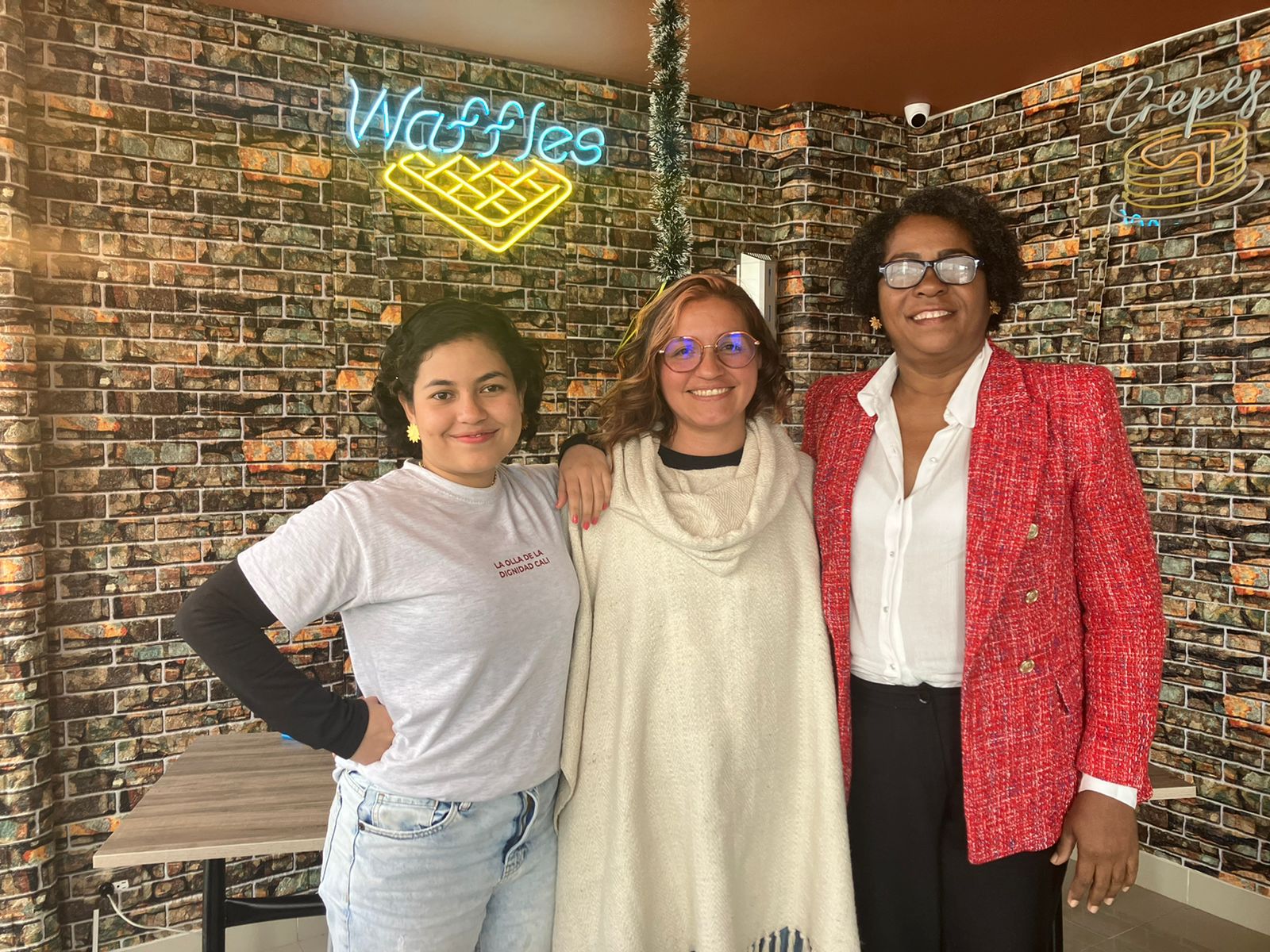
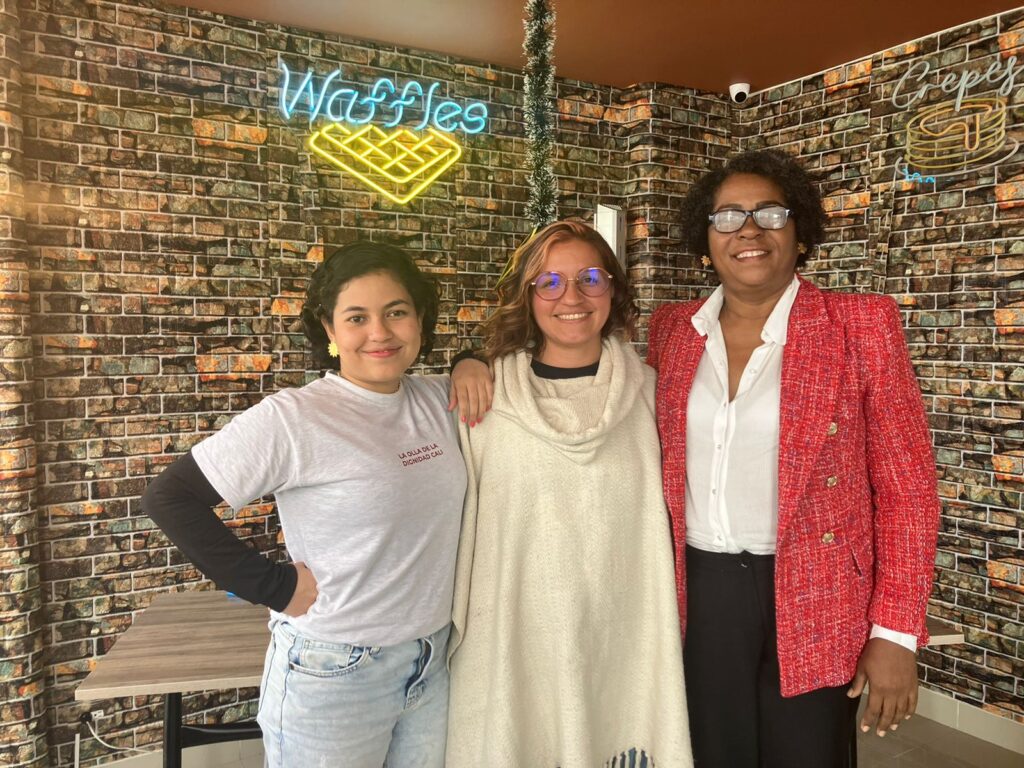
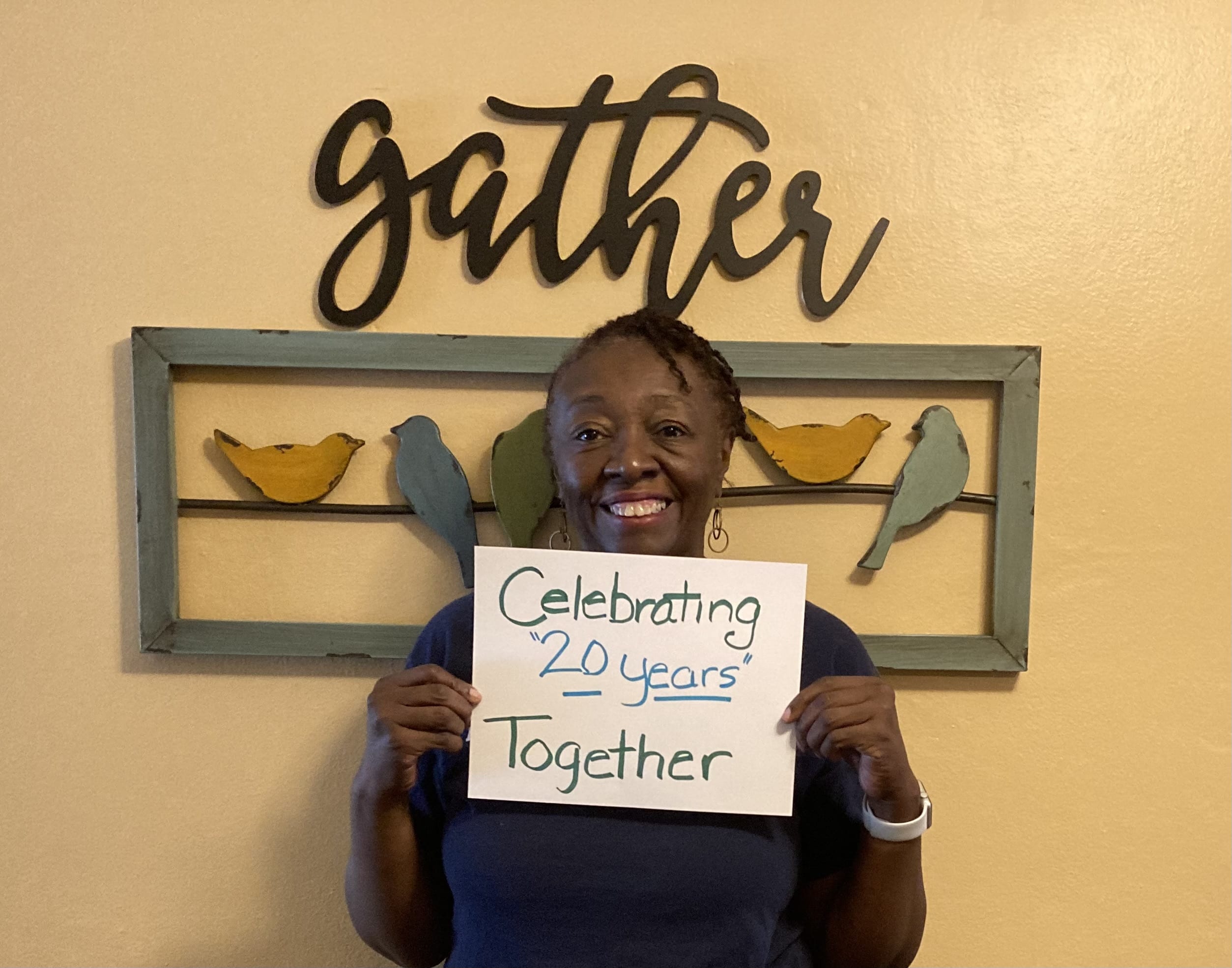
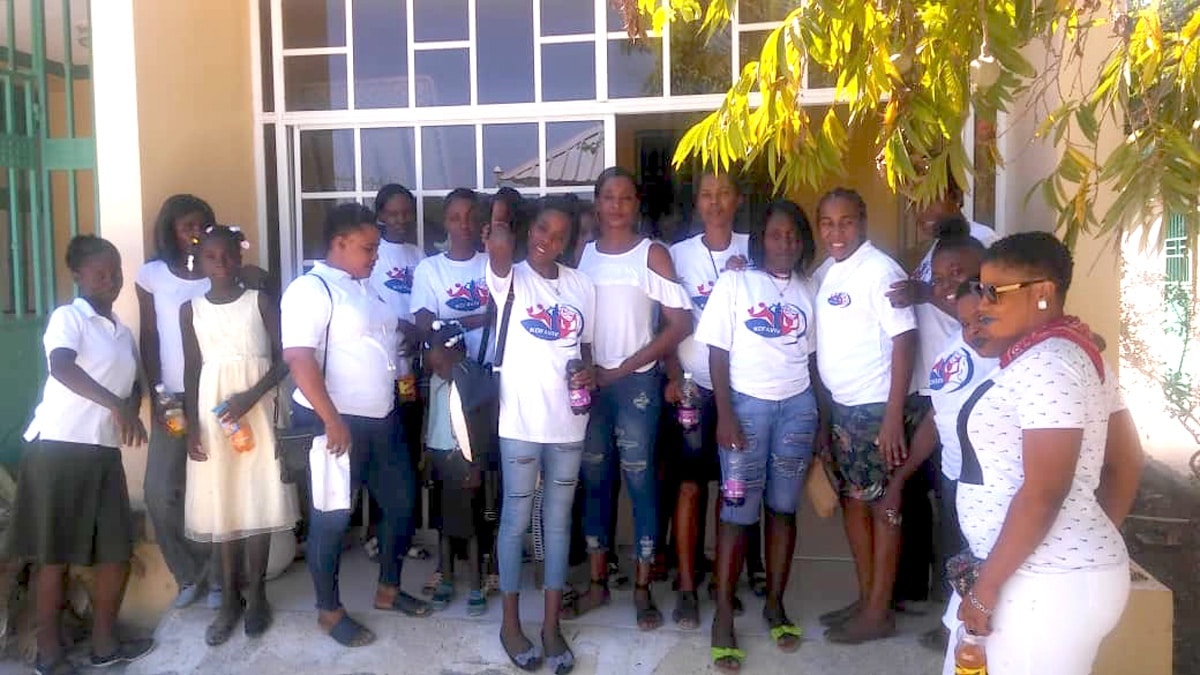
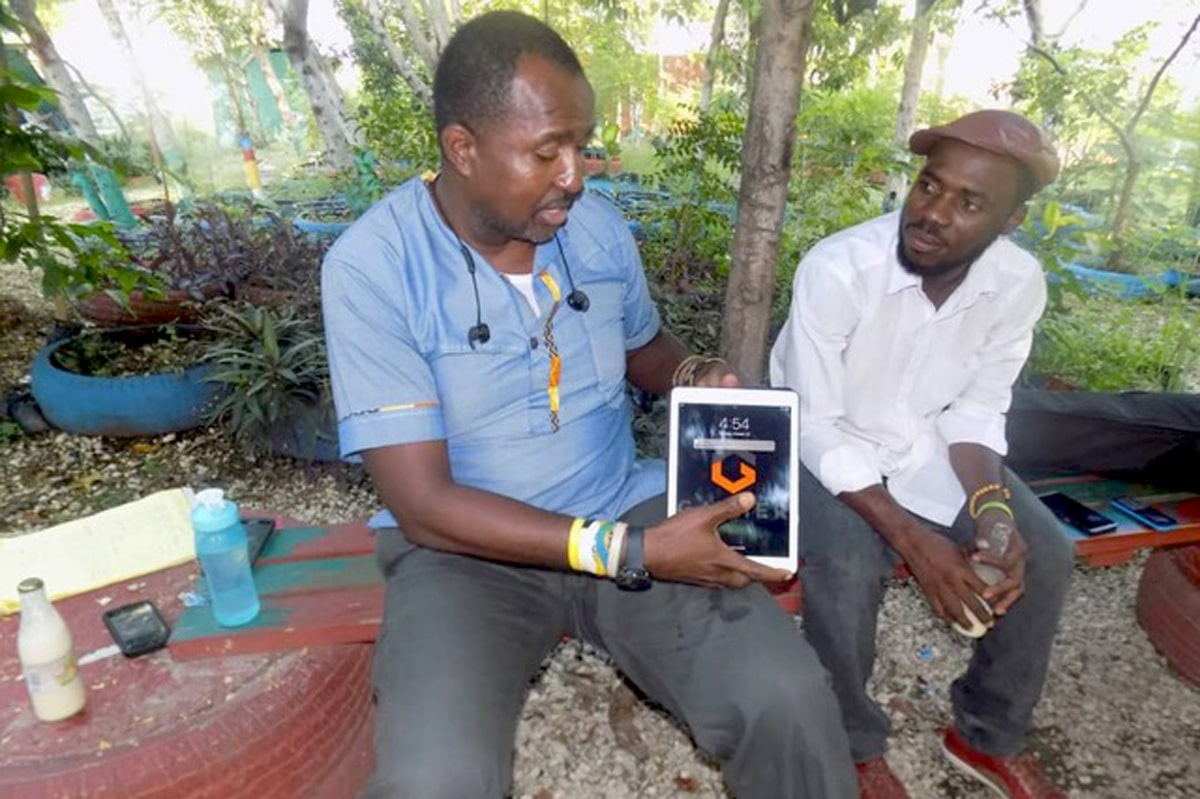



 I am 70 years old and I have lived in current neighborhood since 1982 with my 6 children. My oldest child was in the hospital for a life-saving surgery for her kidneys. On my way home from the hospital, bandits appeared with gunmen shooting in front of me as I neared my home. The bandits had just left my house.
I am 70 years old and I have lived in current neighborhood since 1982 with my 6 children. My oldest child was in the hospital for a life-saving surgery for her kidneys. On my way home from the hospital, bandits appeared with gunmen shooting in front of me as I neared my home. The bandits had just left my house. I have 4 kids and I live in Grand Ravine with my husband. Now I'm going to do everything for the kids because bandits in the area have shot their dad while there was a massacre in the Great Ravine. When it happened, I was going to to the market to sell hypolite fire logs. While I was there, the bandits came to the market with their weapons and I worried about my kids so I ran home. I can't stay at my house anymore and I can't sleep at night. I have a baby boy in my hand; I could not find a safe place to go with them until I found KOFAVIV. They helped me find a place outside the city to take my kids until the violence ends.
I have 4 kids and I live in Grand Ravine with my husband. Now I'm going to do everything for the kids because bandits in the area have shot their dad while there was a massacre in the Great Ravine. When it happened, I was going to to the market to sell hypolite fire logs. While I was there, the bandits came to the market with their weapons and I worried about my kids so I ran home. I can't stay at my house anymore and I can't sleep at night. I have a baby boy in my hand; I could not find a safe place to go with them until I found KOFAVIV. They helped me find a place outside the city to take my kids until the violence ends. I take care of 6 children by myself because their father died. I went to the streets to pick up plastic bottles to sell so I could care for my kids. Bandits with weapons came to my house and broke all that I had in the house. They beat me, and ever since then then I have a sore stomach because of a big kick in my stomach. I left home because I don’t want them to come back and kill me with the children. At first I was able to sleep with my kids in a friend's house but, I wasn't able to be in the house when she wasn't there so we'd have to be on the streets all day. We needed a new place to stay.
I take care of 6 children by myself because their father died. I went to the streets to pick up plastic bottles to sell so I could care for my kids. Bandits with weapons came to my house and broke all that I had in the house. They beat me, and ever since then then I have a sore stomach because of a big kick in my stomach. I left home because I don’t want them to come back and kill me with the children. At first I was able to sleep with my kids in a friend's house but, I wasn't able to be in the house when she wasn't there so we'd have to be on the streets all day. We needed a new place to stay. I live in the Grand Ravine with my 2 sons. Every day and every night I had to move to a different home. Children are crying because I'm running with them. Every time we turned around the area became incomprehensible to me. These bandits have no fear of the police and the day is full with shooting. With these bandits in Grand Ravine, its only a matter of time before we're going to be raped and tortured. The bandits even call my phone as they go into my home. Because I was making a living by doing laundry at my home, now I can't find a place where I can afford it. KOFAVIV helped me find a new place for now.
I live in the Grand Ravine with my 2 sons. Every day and every night I had to move to a different home. Children are crying because I'm running with them. Every time we turned around the area became incomprehensible to me. These bandits have no fear of the police and the day is full with shooting. With these bandits in Grand Ravine, its only a matter of time before we're going to be raped and tortured. The bandits even call my phone as they go into my home. Because I was making a living by doing laundry at my home, now I can't find a place where I can afford it. KOFAVIV helped me find a new place for now.
 My name is Roselène I'm 33 years old. I have a child living with me and mysister in the neighborhood called Village of God. I have been subjected to extensive violence in the area because of these bandits who came to my home. They violated my sister and tried to violate me too. They beat me and I am in the streets now, and I cannot return to my house.
My name is Roselène I'm 33 years old. I have a child living with me and mysister in the neighborhood called Village of God. I have been subjected to extensive violence in the area because of these bandits who came to my home. They violated my sister and tried to violate me too. They beat me and I am in the streets now, and I cannot return to my house.
